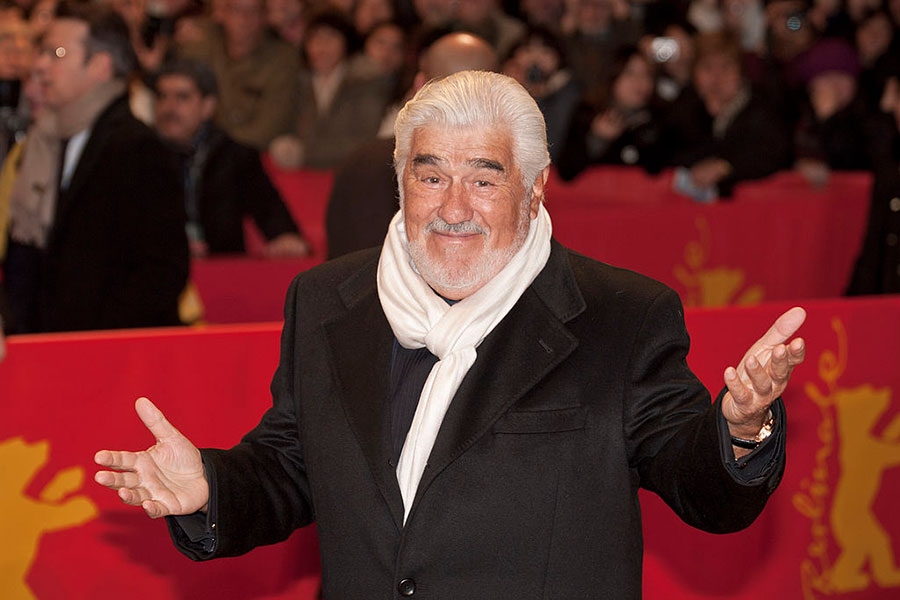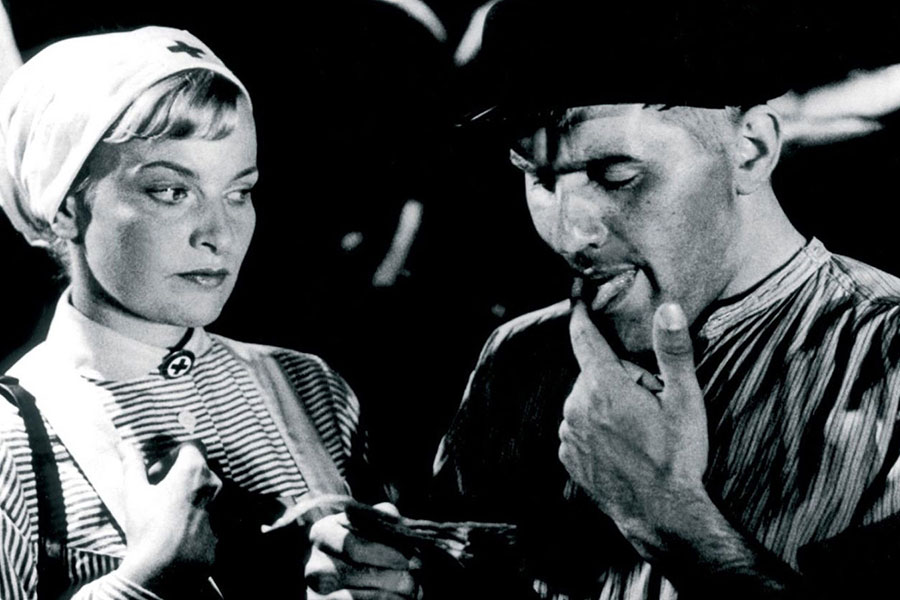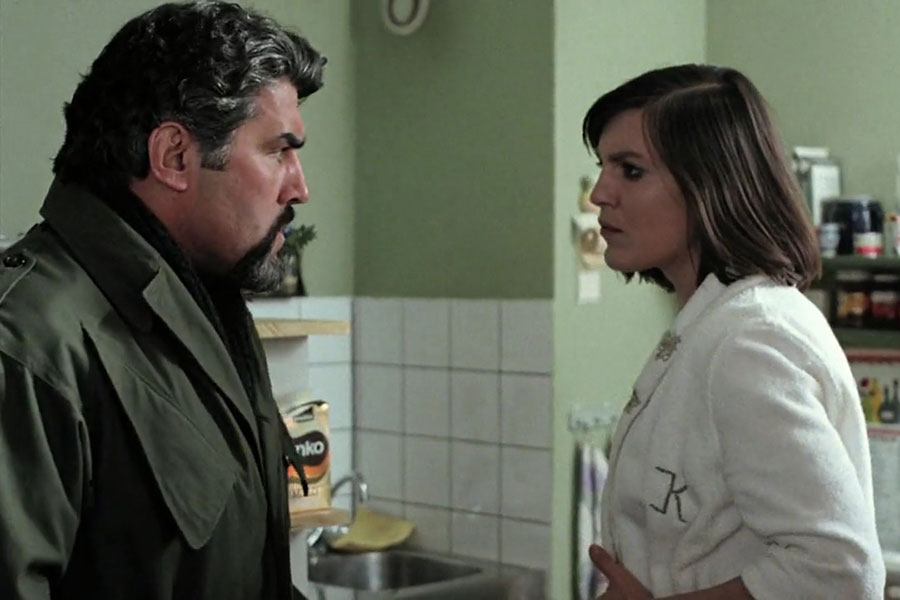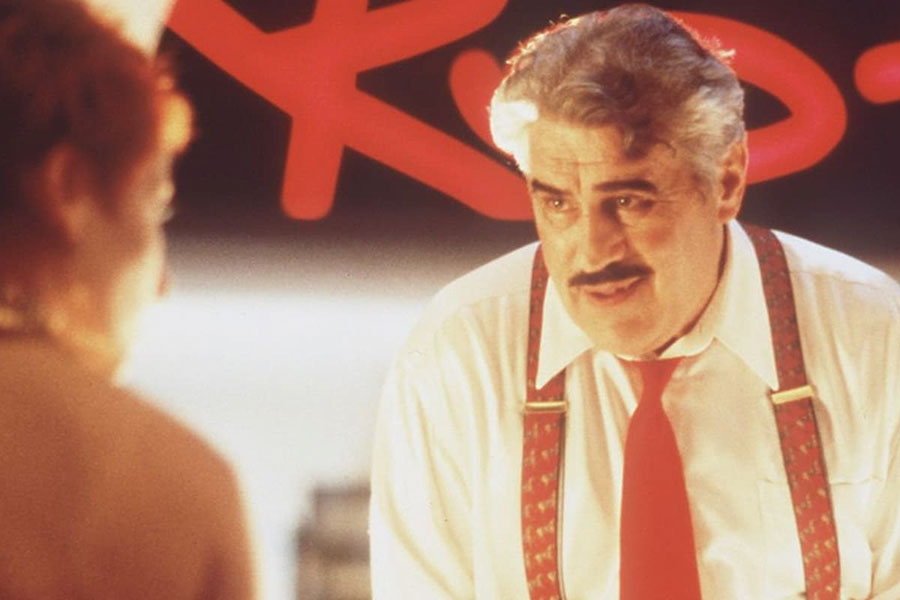To say that Mario Adorf is an accomplished actor seems like an understatement of understatements. With a career spanning nearly seven decades and more than 200 productions in film and television, he is considered one of Europe’s leading character actors. He can be found across the continent, from Germany to Italy to England. Quite simply, he is a legend.
So this month, let’s learn German with the films of legendary actor Mario Adorf!
Get to Know Mario Adorf
Mario Adorf was born in Zürich, Switzerland, on September 8, 1930. His parents – a German medical radiographer and an Italian surgeon – were not married. In fact, his father was married to someone else. Adorf took his mother’s last name and she raised him as a single mother in western Germany. Times were tough for the family. Mario spent a short period in a Catholic children’s home when his mother was struggling financially.
In 1950, he enrolled at the University of Mainz. His interests were varied and he studied everything from psychology and criminology to music history and drama. Adorf was also involved in the student boxing club.
His break into the entertainment business came in 1953. He had moved back to Zürich and was working as an extra and a director’s assistant at Schauspielhaus Zürich, one of the most significant German-language theaters in the world. The following year, Mario Adorf moved to Munich and joined the city’s Kammerspiele. His first film roles came that same year.
Nachts, wenn der Teufel kam (The Devil Strikes at Night)
Nominated for an Oscar for the Best Foreign Language Film, 1957’s Nachts, wenn der Teufel kam (known as The Devil Strikes at Night in English) is a classic film from Robert Siodmak.
Based on actual events and people, the film tells a fictionalized story of German serial killer Bruno Lüdke (portrayed by Mario Adorf) who victimized women during the final years of World War II. The authorities do not have a clear grasp of the crimes. At one point, they arrest an innocent man for the murders.
Frustrated by the difficulties in the case, a detective works to find the real murderer. But, in the context of Nazi Germany, nothing is easy.
Die verlorene Ehre der Katharina Blum (The Lost Honor of Katharina Blum)
Based on the Heinrich Böll novel of the same name, Die verlorene Ehre der Katharina Blum (also known as The Lost Honor of Katharina Blum) was directed by Volker Schlöndorff and Margarethe von Trotta.
In the film, Katharina (portrayed by Angela Winkler) meets a charming man at a party and spends the night with him. As a result, she is unwittingly and unknowingly about to be thrust into the spotlight. The man is an alleged leftist terrorist who has committed a bank robbery. What’s more, he has disappeared without a trace.
Given their connection, the police and the tabloids descend upon Katharina. Her life is about to get turned upside down, despite the fact the small fact that she hasn’t done anything wrong. Mario Adorf portrays Kommissar Beizmenne, the police inspector interrogating Katharina.
It should be noted that both the film and the book with the following note: “The characters and action in this story are purely fictitious. Should the description of certain journalistic practices result in a resemblance to the practices of Bild-Zeitung, such resemblance is neither intentional, nor fortuitous, but unavoidable.”
Rossini – oder die mörderische Frage, wer mit wem schlief
Directed by the late Helmut Dietl, Rossini – oder die mörderische Frage, wer mit wem schlief stars Götz George, Heiner Lauterbach, and Mario Adorf. Known simply as Rossini in English – dropping the or the murderous question of who slept with whom – was the most successful film in Germany in 1997. The film was also well-received critically, including Bavarian and German film prizes.
In the comedy, Munich‘s media elite meet nightly at the fancy Rossini restaurant of Italian Paolo Rossini, portrayed by Adorf. The film follows a self-involved group, including a director (George) and a movie producer (Lauterbach) who both want to work on the film adaptation of a hit new book. The story becomes quite complicated with the addition of a leading aspiring actress, a sexy journalist, and a shy author.
Practice practice practice! Discover other great German language actors and actresses previously featured.
Top photo by Siebbi, CC BY 3.0, via Wikimedia Commons. This post contains affiliate links.



